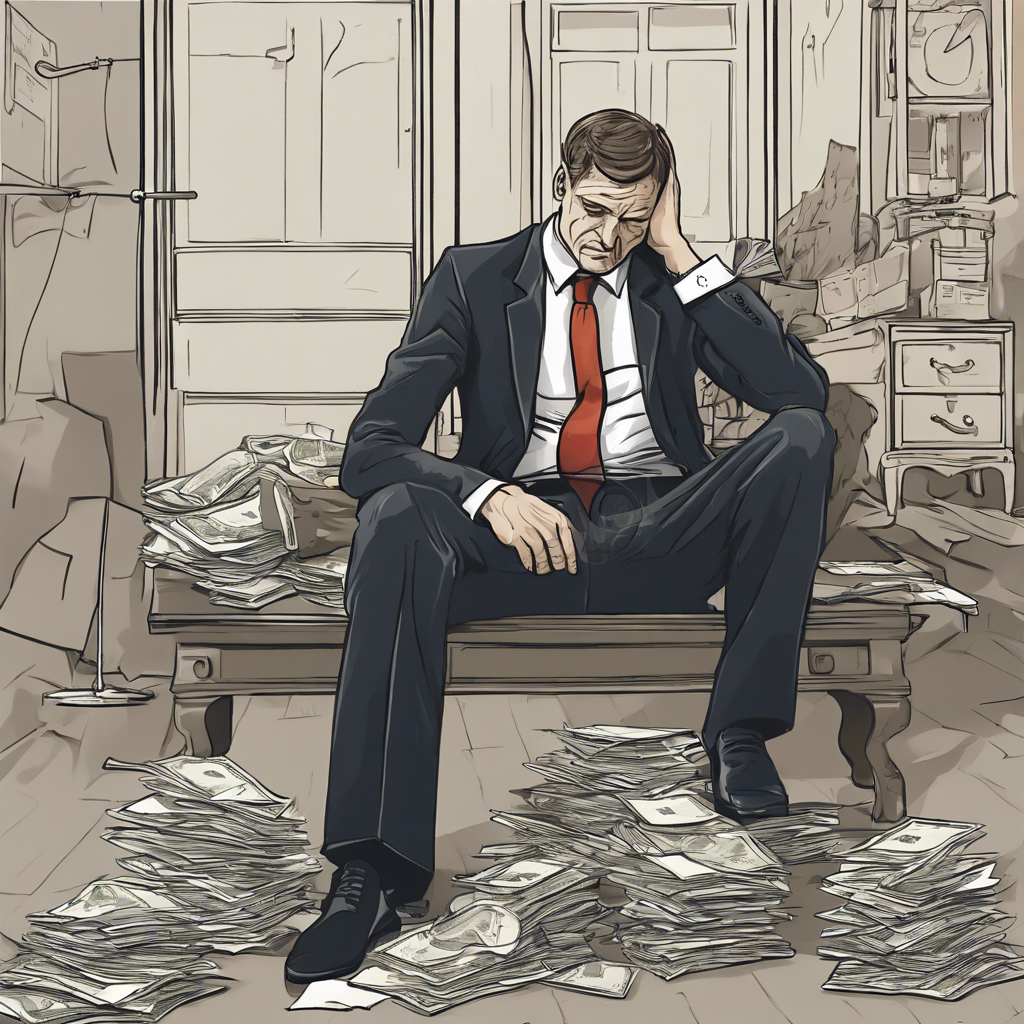Germany’s Economy: A Tired Man After a Short Night

Finance Minister Christian Lindner Addresses Concerns Over Germany’s Economic Health at World Economic Forum
Germany, often regarded as Europe’s economic powerhouse, has recently faced challenges that have led to debates over its economic health. Finance Minister Christian Lindner sought to address these concerns during a panel at the World Economic Forum in Davos, Switzerland. Lindner rejected the notion that Germany is the “sick man of Europe” but acknowledged the impact of recent crises on the country’s economy. This article will explore the current state of Germany’s economy, the factors contributing to its challenges, and the implications for the nation’s future.
1: The Resurfacing of the “Sick Man” Label
References to Germany as the “sick man of Europe” resurfaced in recent years, highlighting concerns about the country’s economic performance. This label, first used in 1998 during the challenges of post-reunification, resurfaced as Germany faced a range of difficulties. The economy narrowly avoided a recession at the end of 2023 but experienced a 0.3% year-on-year contraction. Declining manufacturing output and the impact of high energy costs, inflation, and interest rates have all contributed to Germany’s economic struggles.
2: Germany’s Economic Success and Fatigue
Despite recent challenges, Germany experienced a period of success since 2012. The country’s strong economic performance positioned it as a European leader. However, the COVID-19 pandemic and subsequent crises have taken a toll on Germany’s economy. Finance Minister Lindner likened the current state of the economy to a tired man after a short night, acknowledging the exhaustion caused by the recent crises. This fatigue reflects the strain on Germany’s economic stability and the need for strategic measures to regain momentum.
3: The Impact of Global Factors
Germany’s economic challenges are not isolated but are influenced by global factors. The rise in energy costs, driven by geopolitical tensions and a shift towards renewable energy sources, has affected German industries heavily reliant on energy-intensive processes. Additionally, inflationary pressures and rising interest rates have impacted consumer spending and business investments. Germany’s export-oriented economy has also faced headwinds due to global supply chain disruptions and trade tensions.
4: Government Response and Mitigation Measures
The German government has recognized the need to address the economic challenges facing the nation. Efforts to mitigate the impact of high energy costs include investing in renewable energy infrastructure and incentivizing energy efficiency measures. The government has also implemented measures to combat inflation and support businesses through targeted financial support and tax incentives. These initiatives aim to stabilize the economy and encourage growth in key sectors.
5: Future Outlook and Implications
The current state of Germany’s economy raises questions about its future trajectory. While the challenges are significant, Germany’s strong economic foundation and history of resilience provide reasons for optimism. Strategic investments in innovation, digitalization, and sustainable industries can position Germany for long-term growth. However, addressing structural issues, such as labor market reforms and reducing bureaucracy, will be crucial to ensure the country’s economic vitality.
Conclusion:
Germany’s economy, once hailed as a European powerhouse, has faced significant challenges in recent years. The resurfacing of the “sick man of Europe” label reflects the impact of declining manufacturing output, high energy costs, inflation, and interest rates. Finance Minister Christian Lindner’s analogy of a tired man after a short night captures the exhaustion caused by the recent crises. However, Germany’s economic resilience, coupled with strategic government measures, offers hope for a brighter future. As the nation navigates these challenges, addressing structural issues and embracing innovation will be vital for long-term economic growth and stability.

